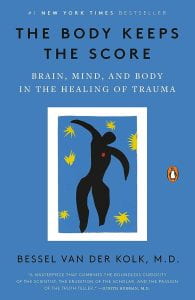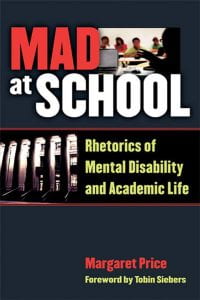This blog post is an exploration on the impact of trauma and provides UWT Library resources to help support you through your learning. Trauma, whether stemming from singular traumatic events or prolonged exposure to adverse experiences, can profoundly impact an individual’s mental, emotional, and physical well-being, thereby qualifying as a disability under certain frameworks. Through this blog post, we aim to shed light on the lived experiences of individuals navigating trauma, examine the challenges they may face, and highlight resources that can help you understand, heal, and foster resilience.
Trauma theorist Cathy Caruth offers a broad definition of trauma as the response to sudden, overwhelming violent events that are not fully comprehended at the time but resurface later through recurring flashbacks, nightmares, and other repetitive phenomena. The aftermath of trauma extends beyond individual experiences, permeating various aspects of life and relationships. Traumatized individuals often grapple with hyper vigilance, sleep disturbances, memory lapses, and an impaired ability to manage stress and form connections with others. These challenges underscore the pervasive nature of trauma, highlighting its far-reaching implications on personal well-being and social dynamics.
In essence, trauma isn’t confined to a singular event but ripples through time, leaving an indelible imprint on the mind, body, and soul. By delving into the multifaceted dimensions of trauma, we gain a deeper understanding of its profound impact and pave the way for healing and resilience in its wake.

To be triggered entails a profound re-experiencing of past trauma, both mentally and physically, to the extent that one’s emotional response overwhelms the ability to remain present in the body and mind. During such episodes, individuals often feel a profound loss of control and disconnect from their body and mind. This state isn’t merely a matter of injury but rather a form of disability.
Trauma can disrupt students’ cognitive functioning, impairing their ability to concentrate, retain information, and engage in critical thinking. The constant intrusion of intrusive thoughts, flashbacks, and hypervigilance can hijack students’ mental bandwidth, leaving them unable to fully immerse themselves in their studies or absorb new material. This cognitive fog further exacerbates feelings of frustration, inadequacy, and self-doubt, perpetuating a cycle of academic underachievement.
This can severely impact students’ ability to learn and engage with their courses in the way they would like. Students may become triggered in lecture, making them unable to listen to the professor and take proper notes. They then miss key information that can impact their ability to do well on assignments and tests. While doing research, students’ may be triggered by past experiences or generational trauma from marginalized identities. For students of color, queer students, students with mental illness, and students with other disabilities, doing research can be particularly triggering because they are forced to relive the history of abuse and oppression.

If you are a student who is struggling, there are resources that can help you navigate through trauma and succeed in higher education. Psychological & Wellness Services (PAWS) provides confidential counseling and other mental health services to UW Tacoma students at no additional costs. PAWS provides solution-oriented mental health counseling, with the goal of enhancing coping mechanisms and fostering skill development. PAWS offers a range of confidential services, including crisis intervention, individual and group counseling sessions.
HuskiesCare is the Student Affairs Virtual Resource Hub. This site is managed by the Office of Student Advocacy and Support and offers a lot of resources for students’ basic needs and other struggles you may be experiencing. If you are experiencing something not listed on this website, you can email them at stusuppt@uw.edu, and someone will respond with resources as soon as they can.
Disability Resources for Students (DRS) can help you receive accommodations if you have a physical, emotional, or mental disability that significantly impedes one or more major life activities– including learning and working. DRS can help you figure out what you need in order to succeed in higher education.
There are also free Pierce County resources:
- NAMI Connection Support Team is a free, peer- led support group for adults who have experienced any symptoms of a mental health condition.
- Pierce County Trauma Resilience Team offers short- term mental health support in person and online for stress management following traumatic events as well as educational activities that promote trauma resilience.
- NAMI Health Library is an educational Tool Kit where you can find information about different conditions and treatments.
- Pierce County also offers a variety of support groups if you are experiencing trauma as an effect of chronic illness, physical disability, caregiving, and more.
If you or someone you know is in crisis, you can also call Pierce County’s 24- hour crisis line at 800-576-7764. You can also text ‘NAMI’ to the Crisis Line: 741741.
Finally, the UW Tacoma Library and UW Libraries has more resources if you would like to learn more. Here are a few titles to get you started:
- The body keeps the score : brain, mind, and body in the healing of trauma by Bessel A Van der Kolk
- What my bones know : a memoir of healing from complex trauma by Stephanie Foo
- Mad at school : rhetorics of mental disability and academic life by Margaret Price
- ‘Who Speaks from the Site Of Trauma?’: An Interview with Cathy Caruth
- Aftermath : violence and the remaking of a self by Susan J. Brison
We are not trained medical professionals. The content on this blogpost is for informational purposes only and should not be considered professional medical advice.